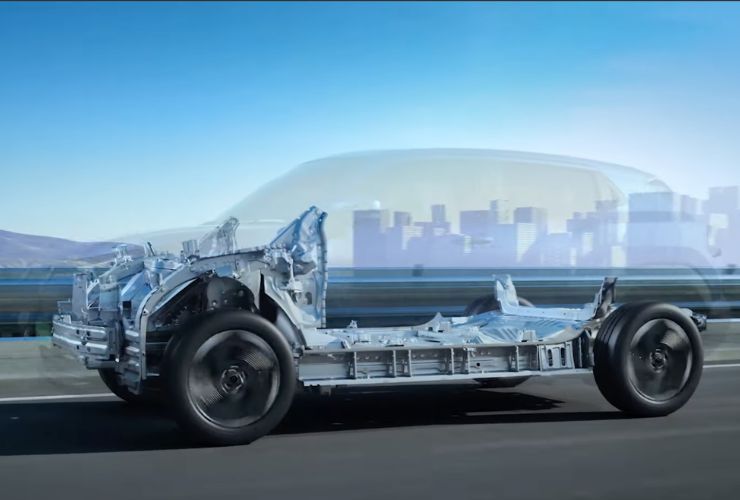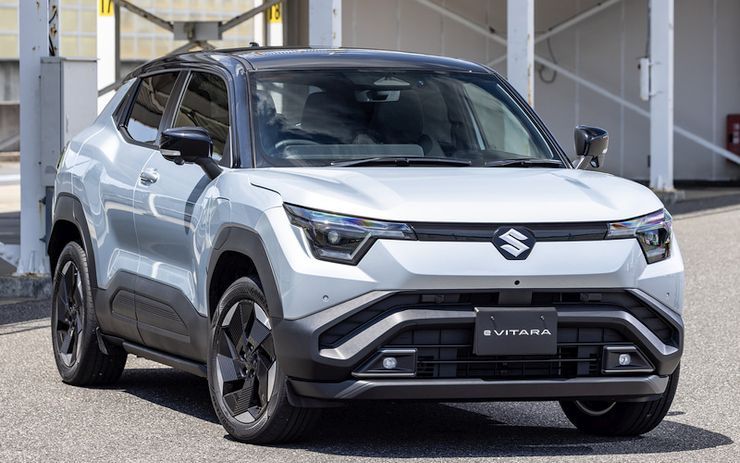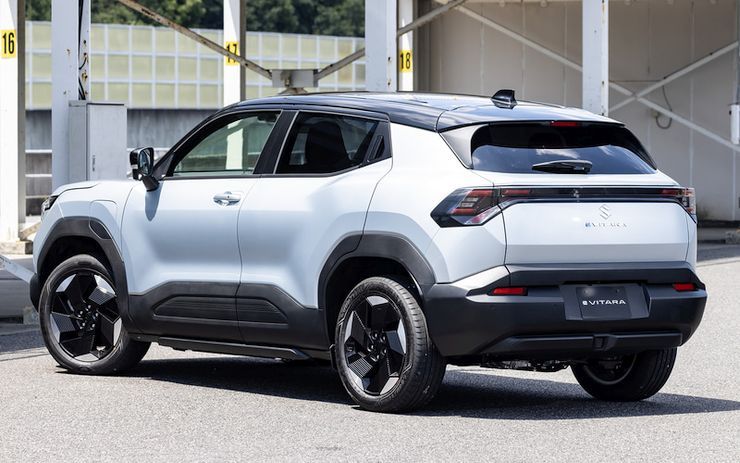Maruti Has Already Exported 6,000 eVitara Electric SUVs: Yet To Go On Sale In India


Maruti Suzuki has shipped 6,068 units of its upcoming electric SUV, the eVitara, in just two months. The exports took place across August and September, making this the first chapter in the model’s rollout before its domestic launch.

Production of the eVitara began on August 26 at Maruti Suzuki’s Hansalpur plant in Gujarat, and exports are being handled through Pipavav Port. The first batch of over 2,900 units was sent to 12 European countries, with subsequent consignments lifting the total beyond 6,000 units.

The first wave of exports covered markets such as the UK, Germany, Norway, France, Denmark, Switzerland, the Netherlands, Sweden, Hungary, Iceland, Austria and Belgium.
Rather than focusing on a single trial market, Maruti Suzuki spread the shipments widely across Europe. The company has confirmed that the eVitara will also be sold in India, but exports have been given priority at this stage.
Official plans indicate the model will eventually be offered in more than 100 countries. Trade reports suggest that India’s launch is likely to take place in early 2026, which means the current phase is essentially pre-launch testing and validation through exports.
The approach is not new. Maruti Suzuki has in the past used an export-first strategy for new models, ramping up volumes abroad before beginning local deliveries. This sequencing allows it to fine-tune production processes, manage supply chains, and incorporate quality improvements while working at controlled export volumes.

The eVitara is based on the HEARTECT-e architecture, a platform designed specifically for battery-electric vehicles. Maruti Suzuki has underlined that the platform balances technology needs with structural strength.
For India, variants under consideration reportedly include Delta, Zeta and Alpha. A claimed range target of around 500 km has been floated, but the official specifications for the domestic version will only be revealed closer to launch. By the time the model arrives in showrooms here, production and testing cycles would have matured through the export runs.

Europe has been chosen as the starting point for a reason. Regulations there demand advanced safety features and strict equipment levels, which shape how vehicles are engineered. By exporting the eVitara to Europe first,
Maruti Suzuki is aligning the SUV with the toughest standards from day one. Once those requirements are met, adapting the model for India becomes easier. European customers also represent a ready market for compact electric SUVs, making the eVitara’s early arrival there a commercially viable step.

This approach also ensures that the product is not launched in India in a raw form. Instead, Indian buyers will eventually receive a vehicle that has already proven itself under demanding regulatory and consumer conditions.

The launch of production was marked by a high-profile event attended by the Prime Minister, reflecting the significance of the project beyond just the car market.
It signals India’s growing role in global EV supply chains and underlines Maruti Suzuki’s effort to use its Indian plants as export hubs. The 6,068 units shipped so far have been closely tracked by the automotive press and community forums, giving the industry a clear picture of the scale.